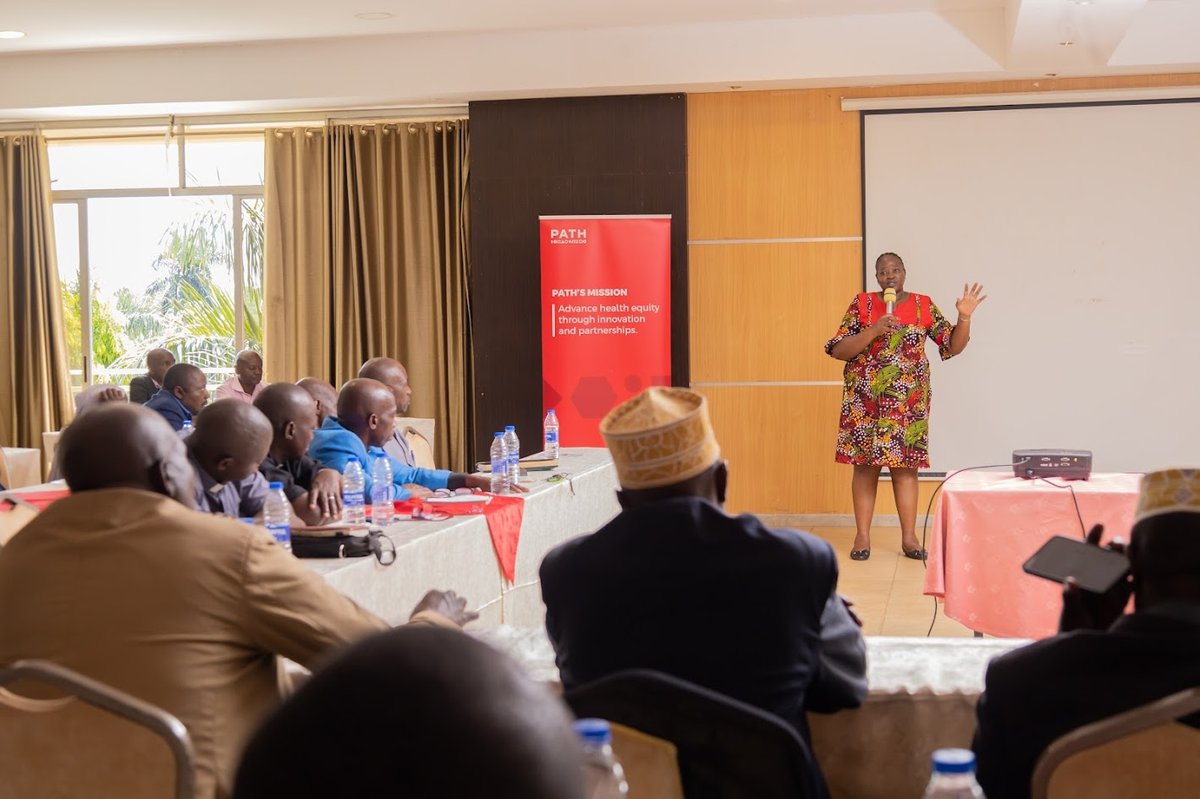Malaria is the leading cause of illness and death of young children in Uganda, where there are an estimated 12.6 million cases each year and 16 deaths from the disease each day. Malaria is responsible for 33 percent of all outpatient attendance, 22 percent of hospitalizations, and 11 percent of deaths in Uganda, and the disease has a high economic burden, accounting for approximately 15 percent of household income.
Now, Uganda has taken a critical step in its effort to combat the disease by introducing the malaria vaccine to children across nearly the entire country—marking the largest malaria vaccine introduction to date in terms of the number of districts and target population.
Partnering to take on malaria at scale
Uganda aims to distribute 3.5 million doses of the malaria vaccine to children under 2 years of age across 105 of 146 districts with high and moderate malaria transmission, with plans to roll out the vaccine to the entire country in the future. The malaria vaccine is being introduced into the routine childhood immunization system and administered at 6 months, 7 months, 8 months, and 18 months. The vaccine, which is part of a package of malaria control tools, is expected to help reduce severe illness and death due to malaria among children younger than 5 years of age.
Introducing the malaria vaccine across nearly the entire country required close collaboration between the Uganda Ministry of Health’s National Expanded Program on Immunization (UNEPI) and National Malaria Elimination Program (NMEP), and technical assistance and other support from partners such as PATH, WHO, Gavi, the Vaccine Alliance, and UNICEF. The Government of Uganda and Gavi are providing the required funding to procure the vaccine doses.
“The malaria vaccine, used in combination with other existing malaria prevention tools, is expected to be a game-changer in significantly reducing child mortality and morbidity.”— Dr. Julia Mwesigwa, Senior Research Officer, PATH
Throughout the planning and introduction process, support from the President of Uganda, the Minister of Health, and other sector leaders has been essential, and the vaccine introduction journey highlights Uganda’s commitment to eliminating malaria. The vaccine now has a role in the country’s broader strategy to combat the disease, which includes the use of insecticide-treated bed nets, indoor residual spraying, seasonal malaria chemoprevention, and effective case management.
“The arrival of the malaria vaccine marks an important journey in the quest for a malaria-free Uganda,” said Dr. Julia Mwesigwa, Senior Research Officer at PATH. “The malaria vaccine, used in combination with other existing malaria prevention tools, is expected to be a game-changer in significantly reducing child mortality and morbidity.”
PATH supports Uganda’s malaria vaccine introduction
PATH, which has collaborated with UNEPI, NMEP, and other partners, provided technical and financial assistance throughout the planning process and will continue to support Uganda’s malaria vaccine implementation process following the launch of the vaccine in April 2025. PATH supported the EPI surveillance team by conducting a national readiness assessment to inform planning for the introduction. In the lead-up to the official launch of the vaccine, PATH contributed to the development of tailored introduction plans, resource mapping, qualitative surveys to obtain baseline data from communities on perceptions of malaria and vaccines, health worker training, and the strengthening of logistics and vaccine cold chain systems.
With support from Gavi and GiveWell, PATH’s support has also included malaria vaccine advocacy, communications, and social mobilization at the national and subnational level, including meeting district health teams and local government leadership in Uganda’s south region. This work has involved holding targeted malaria vaccine orientation meetings for religious, cultural, elected and appointed leaders, media, health professional associations, civil society organizations, and community members across the target districts. Gavi supported this work at the national level, and GiveWell provided support at the regional level.
PATH’s work on malaria vaccines spans nearly 25 years, involving key collaborations during both the vaccine development and implementation phases. As part of this work, PATH provided technical assistance during pilot introduction of malaria vaccination in parts of Ghana, Kenya, and Malawi between 2019 and 2023. Lessons from the pilots have informed the introduction of malaria vaccines in 16 additional countries, including Uganda, since the start of 2024.
An exciting step toward malaria elimination in Africa
Uganda’s ambitious introduction program is poised to provide lessons for other African countries that are planning to introduce the malaria vaccine into their childhood immunization programs. WHO has recommended two vaccines to prevent malaria in children, which act against Plasmodium falciparum, the deadliest malaria parasite globally and the most prevalent in Africa. The malaria vaccines are proven to reduce episodes of malaria in children, including severe malaria, and they reduce child deaths due to the disease.
Uganda is the third-highest contributor to global malaria cases, at 4.8 percent in 2023. The size and scale of Uganda’s malaria vaccine introduction is a groundbreaking effort to protect children at risk, and a chance to support continued engagement targeting all four doses that extend into children’s second year of life. Ongoing partner collaboration, funding, and data collection will be essential to sustain Uganda’s exciting momentum against this disease.



